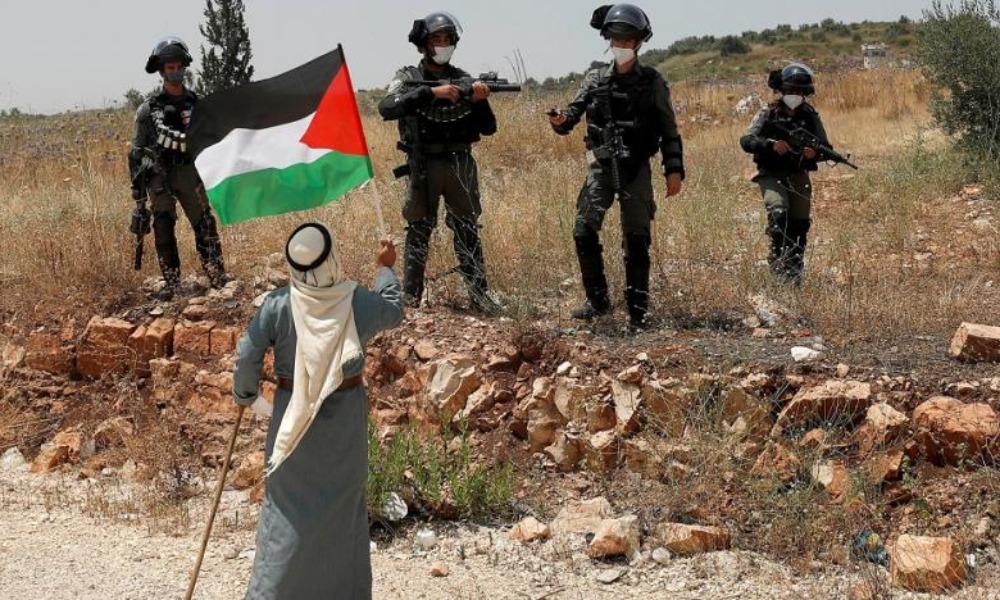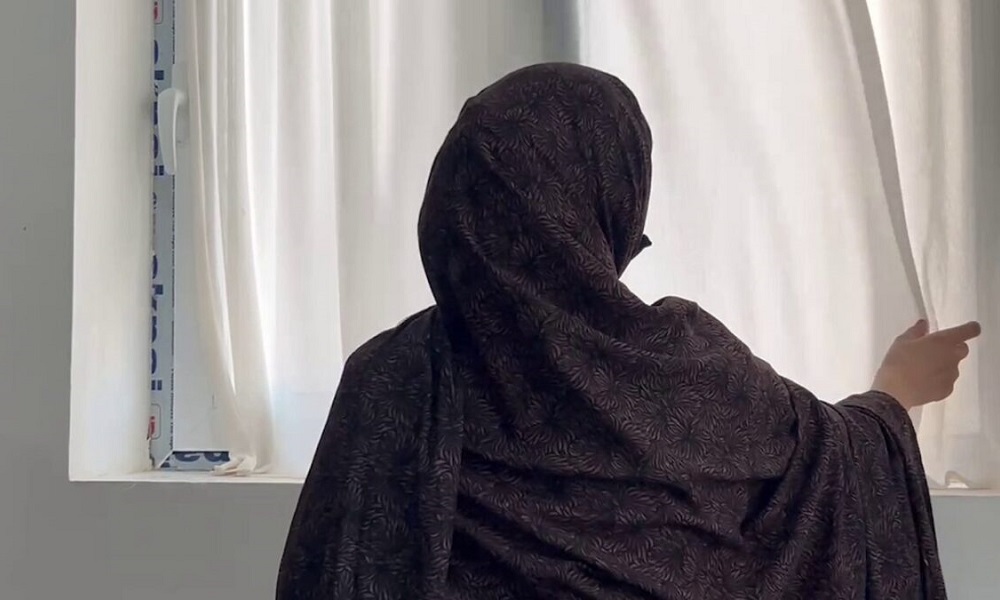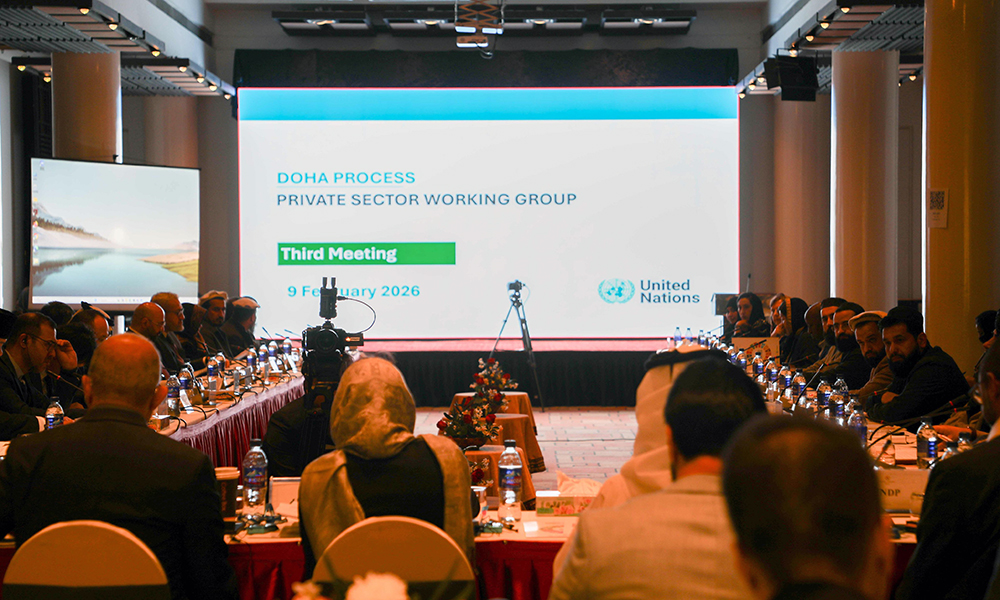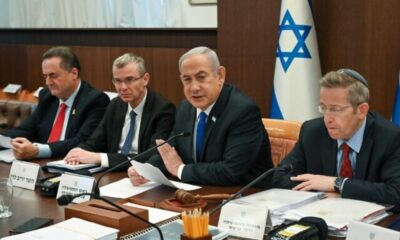Latest News
Human Rights Watch accuses Israel of ‘apartheid’ crimes against Palestinians

An international rights watchdog accused Israel on Tuesday of pursuing policies of apartheid and persecution against Palestinians – and against its own Arab minority – that amount to crimes against humanity.
New York-based Human Rights Watch published a 213-page report which, it said, was not aimed at comparing Israel with apartheid-era South Africa but rather at assessing “whether specific acts and policies” constitute apartheid as defined under international law.
Israel’s foreign ministry rejected the claims as “both preposterous and false” and accused HRW of harbouring an “anti-Israeli agenda,” saying the group had sought “for years to promote boycotts against Israel”.
Just weeks ago the International Criminal Court (ICC) announced it would investigate war crimes in the Israeli-occupied West Bank and Gaza Strip, with the Israeli military and armed Palestinian groups such as Hamas named as possible perpetrators.
In its report, HRW pointed to Israeli restrictions on Palestinian movement and seizure of Palestinian-owned land for Jewish settlement in territory occupied in the 1967 Middle East war as examples of policies it said were crimes of apartheid and persecution.
“Across Israel and the (Palestinian territories), Israeli authorities have pursued an intent to maintain domination over Palestinians by exercising control over land and demographics for the benefit of Jewish Israelis,” the report says.
“On this basis, the report concludes that Israeli officials have committed the crimes against humanity of apartheid and persecution,” as defined under the 1973 Apartheid Convention and the 1998 Rome Statute.
BOYCOTT ACCUSATIONS
Israeli officials fiercely object to apartheid accusations.
“The purpose of this spurious report is in no way related to human rights, but to an ongoing attempt by HRW to undermine the State of Israel’s right to exist as the nation state of the Jewish people,” Strategic Affairs Minister Michael Biton said.
Israel’s foreign ministry said HRW’s Israel programme was being “led by a known (BDS) supporter, with no connection to facts or reality on the ground,” referring to the pro-Palestinian Boycott, Divestment and Sanctions movement.
The report’s author, HRW Israel and Palestine Director Omar Shakir, was expelled from Israel in 2019 over accusations he backs BDS.
Shakir denies that his HRW work and pro-Palestinian statements he made before being appointed to the HRW post in 2016 constitute active support for BDS.
Shakir told Reuters that HRW would send its report to the ICC prosecutor’s office, “as we normally do when we reach conclusions about the commissions of crimes that fall within the Court’s jurisdiction.”
He said HRW also sent the ICC its 2018 report about possible crimes against humanity by President Mahmoud Abbas’s Palestinian Authority and the Islamist militant Hamas.
ICC PROBE
The International Criminal Court’s prosecutor said in March that she would formally investigate war crimes in the Palestinian territories, after ICC judges ruled that the court had jurisdiction there.
The Palestinian Authority welcomed the ruling but Israeli Prime Minister Benjamin Netanyahu denounced it as anti-Semitism and said Israel does not recognise the court’s authority.
HRW called on the ICC prosecutor to “investigate and prosecute individuals credibly implicated” in apartheid and persecution.
HRW also said Israel’s 2018 “nation state” law – declaring that only Jews have the right of self-determination in the country – “provides a legal basis to pursue policies that favour Jewish Israelis to the detriment” of the country’s 21% Arab minority, who regularly complain of discrimination.
Palestinians seek the West Bank, Gaza and East Jerusalem, areas captured in the 1967 conflict, for a future state.
Under interim peace deals with Israel, Palestinians have limited self-rule in the West Bank; Hamas runs Gaza.
Latest News
Economic Commission approves national policy for development of agriculture

At a regular meeting of the Economic Commission chaired by Mullah Abdul Ghani Baradar, Deputy Prime Minister for Economic Affairs, the National Policy for the Development of the Agriculture and Livestock Sector was approved.
According to a statement from the deputy PM’s office, the key objectives of the policy include the mechanization of the agriculture and livestock sector; development of agricultural, irrigation, and livestock research and extension systems; management of irrigation systems; support for investment in these sectors; and ensuring public access to high-quality agricultural and animal products.
During the same meeting, the development plan for the fish farming sector was also approved.
Under this plan, through private sector investment, 7,700 small, medium, and large fish production and farming facilities will be established on 6,500 hectares of land in various parts of the country.
The statement added that the implementation of this plan will create direct employment opportunities for 50,000 people and indirect employment for 250,000 others.
Latest News
Afghan authorities prevent three forced marriages in Balkh, Kunar, and Parwan

Officials from Afghanistan’s Ministry for Virtue and Vice successfully intervened to stop three cases of forced marriage in the provinces of Balkh, Kunar, and Parwan, protecting women’s rights under Islamic law.
The cases involved families attempting to marry off their daughters against their will. After registering and reviewing the complaints, ministry officials acted swiftly to halt the marriages.
The families were summoned and advised on the importance of respecting women’s rights and the freedom to choose a spouse. Following the intervention, they pledged that all future marriages of their daughters would occur only with the women’s full consent.
The ministry said the actions reflect its ongoing commitment to safeguarding women’s rights and enforcing Islamic principles across Afghanistan.
Latest News
Doha process private sector meeting highlights growth and coordination in Afghanistan
The session was divided into two segments, focusing on growth and inclusion in the first part, and coordination and transparency in the second.

The 3rd session of the Doha Process Private Sector Working Group was held both in-person and online at Kabul’s Grand Hotel, hosted by the United Nations Assistance Mission in Afghanistan (UNAMA).
The meeting brought together representatives from the Islamic Emirate of Afghanistan, including the Ministries of Foreign Affairs, Finance, Industry and Commerce, Economy, Labor and Social Affairs, and the Central Bank, alongside UNAMA, UN agencies, international and regional organizations, as well as ambassadors, diplomats, and private sector experts.
The session was divided into two segments, focusing on growth and inclusion in the first part, and coordination and transparency in the second.
Afghanistan’s Islamic Emirate representatives shared achievements and progress since assuming governance, while participants acknowledged these efforts and highlighted their ongoing support for the private sector. All parties offered recommendations to address challenges and emphasized enhanced cooperation moving forward.
-

 Latest News3 days ago
Latest News3 days agoAfghanistan to grant one- to ten-year residency to foreign investors
-

 Sport4 days ago
Sport4 days agoIndonesia shock Japan to reach historic AFC Futsal Asian Cup final
-

 Sport3 days ago
Sport3 days agoIran clinch AFC Futsal Asian Cup 2026 in penalty shootout thriller
-

 Latest News3 days ago
Latest News3 days agoAfghanistan says Pakistan is shifting blame for its own security failures
-

 International Sports2 days ago
International Sports2 days agoWinter Olympics gain momentum as medal table takes shape
-

 Latest News5 days ago
Latest News5 days agoAfghanistan facing deepening hunger crisis after US Aid Cuts: NYT reports
-

 Latest News3 days ago
Latest News3 days agoTraffic police receive new cars
-

 Regional4 days ago
Regional4 days agoIran’s FM calls Oman-mediated talks with US ‘good start’
























